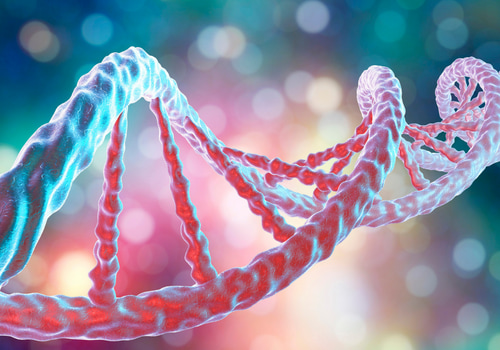Scientists are just beginning to unravel the genetic factors of obesity, and you might be quite surprised to learn about the role that genes often play. Perhaps you are instead concerned about inheriting this condition from other family members, such as one or both of your parents.
While studies are ongoing, it is now possible to narrow down the genetic causes of obesity to better appreciate who is at risk. Let us therefore first examine how biology represents an important piece of the puzzle. We will then discuss some possible environmental factors.
Do Genetics Play a Role in Obesity? An Overview
Can obesity be genetic? The answer is both yes and no. Most scientists believe that genes serve more to influence specific behaviors that may predispose certain individuals to obesity. For instance, heredity may instead be correlated to unhealthy habits such as a poor diet and a sedentary lifestyle. This naturally increases the chances that an individual will gain excess weight.
There are nonetheless three types of obesity that are directly linked to genetics. Let’s briefly analyze each one before moving on.
Monogenic Obesity
As the term might already suggest, this type of obesity is influenced by a single gene mutation found within an area of the DNA known as the “leptin-melanocortin pathway”. Monogenic obesity is the most common type of gene-influenced obesity. Having said this, experts estimate that monogenic obesity accounts for less than five per cent of all cases of severe (or morbid) obesity.

Polygenic Obesity
This final form of obesity is essentially a combination of the other two mentioned above, alongside specific environmental factors that can predispose an individual to excessive weight gain. While as many as 20 different genes are thought to play a role, external variables (such as dietary habits learned at an early age) can “trigger” obesity-related genes to activate.
Factors that Can Influence Obesity
It should now be obvious that genetics and heredity can play crucial roles in relation to the manifestation of obesity. Still, this is only part of a much broader picture. Here are the five factors which are said to be directly or indirectly related to weight gain:
- As mentioned previously, specific genes.
- Prenatal and early life conditions.
- Poor dietary habits.
- A lack of physical activity.
- Failure to obtain an adequate amount of sleep.
This is why treating cases of severe obesity will require a holistic approach, as opposed to remaining focused upon a single variable.

Are You Doomed to Heredity Alone?
Some individuals tend to believe that the genetic factors of obesity will essentially damn them to a life defined by struggling to maintain a healthy body weight. While this may be true in extremely rare cases, it is vital to remember that other variables are equally important.
For example, increased levels of psychological stress can cause the body to release a hormone known as cortisol, a chemical that causes the accumulation of visceral fat. Consuming foods high in refined sugars can lead to weight gain. A lack of motivation to exercise is another contributing factor.
We are ultimately left with the “nature-nurture quandary”. In other words, how much influence do genes really have in relation to obesity? What lifestyle habits may trigger certain genes and cause them to activate? These and similar questions are currently being evaluated by a host of nutritional specialists and geneticists.
There are also plenty of ways in which you can reduce your chances of becoming obese. Notwithstanding healthy lifestyle changes, a growing number of individuals are choosing to leverage the benefits associated with the Spatz3 adjustable gastric balloon. This device will limit the amount of food that can be consumed and help to mitigate hunger cravings between meals. It is extremely comfortable and unlike traditional gastric balloons, its size can be adjusted in accordance with advice from professionals.
While the genetic factors of obesity cannot be denied, you still have a host of weight-busting tools within your arsenal if you know where to look!


